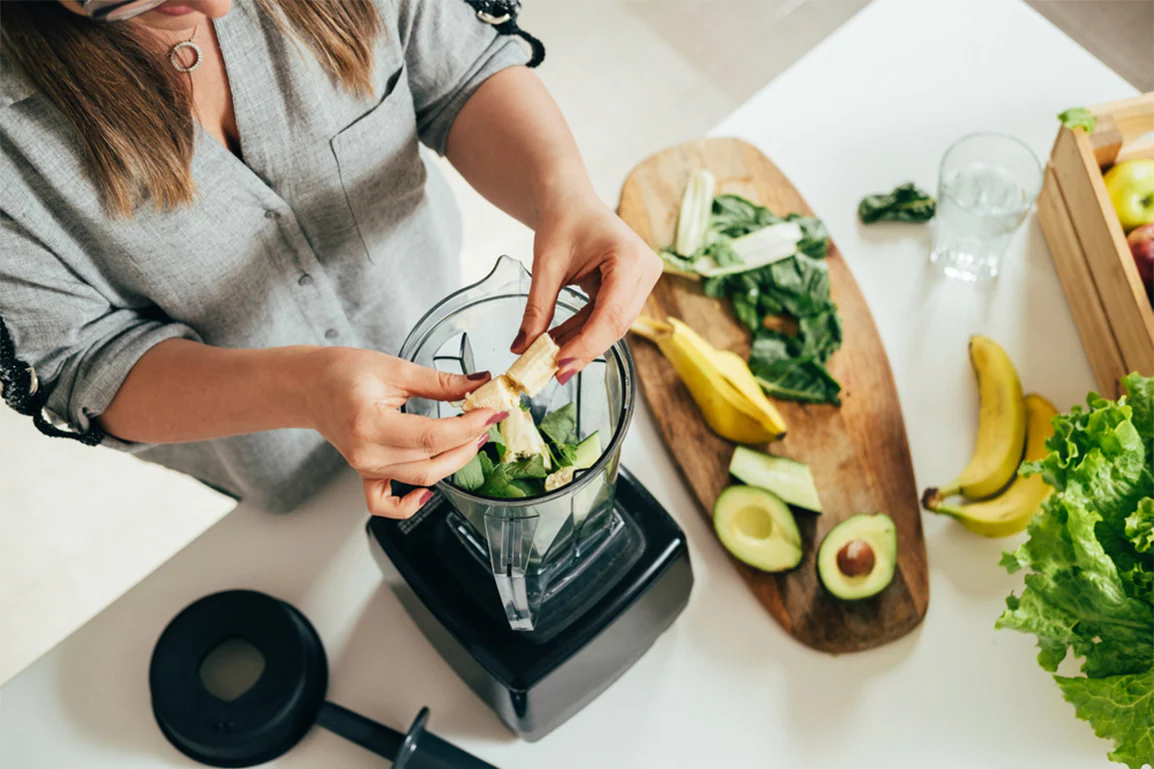Building muscle mass requires more than just spending hours in the gym. While resistance training is a key factor in gaining muscle, proper nutrition, particularly a high-protein diet, plays an equally important role in achieving your mass-building goals. Whether you’re a seasoned lifter or just beginning your muscle-building journey, understanding how to fuel your body with the right foods is essential for making significant progress.
In this article, we’ll dive deep into the fundamentals of a high-protein diet for muscle gain. We’ll explore how protein works in the body, the best sources of protein, how to structure your meals for maximum effectiveness, and some practical tips to optimize your gains. With over 3,000 words of detailed information, this guide will help you master the art of eating to grow!
Why Protein is Critical for Muscle Growth
To understand why protein is so crucial for building muscle, it helps to understand the basics of muscle physiology. Muscles are primarily made up of protein, specifically chains of amino acids that form the building blocks of muscle fibers. When you engage in resistance training, small tears are created in your muscle fibers. Protein is needed to repair these tears, allowing the muscles to recover, grow stronger, and increase in size.
The Role of Protein Synthesis and Breakdown
The process of muscle building revolves around two key actions: protein synthesis and protein breakdown. Protein synthesis is the process by which your body creates new proteins to repair and grow muscle tissue, while protein breakdown occurs when your body breaks down muscle proteins, typically due to stress, exercise, or fasting.
For muscle growth, your rate of protein synthesis must exceed the rate of protein breakdown. This is where a high-protein diet comes into play. By consuming enough quality protein, you provide your body with the necessary materials to maintain an anabolic (muscle-building) state.
Daily Protein Requirements for Muscle Gain
If you’re serious about gaining muscle mass, it’s essential to ensure you’re consuming enough protein each day. General recommendations for those looking to build muscle range from 1.6 to 2.2 grams of protein per kilogram of body weight (roughly 0.7 to 1.0 grams per pound).
For example:
- A 180-pound (81 kg) person aiming for muscle gain would need approximately 130 to 180 grams of protein daily.
However, these numbers are flexible and can vary based on factors like your workout intensity, metabolism, and overall calorie intake. It’s always a good idea to track your protein intake and adjust as needed to ensure you’re hitting your targets.
Protein Timing: When to Eat for Optimal Muscle Growth
In addition to total daily protein intake, protein timing plays a critical role in muscle growth. Consuming protein at key times throughout the day can maximize muscle protein synthesis, helping you recover and grow faster.
Pre-Workout Protein
Eating a balanced meal with protein before your workout ensures that your body has the necessary amino acids during training. This can reduce muscle breakdown and improve performance. Try to eat a meal that contains around 20-30 grams of protein 1 to 2 hours before exercising. This could include lean meats, eggs, or a protein shake.
Post-Workout Protein
Arguably the most important meal for muscle growth is the post-workout meal. After an intense session, your muscles are primed for protein synthesis and need nutrients to start the recovery process. Consuming 20-40 grams of fast-digesting protein (such as whey protein or lean meat) within 30-60 minutes after your workout can significantly enhance muscle recovery and growth.
Protein Spread Throughout the Day
Research suggests that spreading protein intake evenly across meals throughout the day is more effective for muscle gain than consuming large amounts of protein in one sitting. Aim for 20-30 grams of protein at each meal and include snacks that provide additional protein between meals. This helps keep your body in an anabolic state, ensuring continuous muscle repair and growth.
The Best Protein Sources for Building Muscle
Not all protein sources are created equal. The best proteins for muscle building are those that are high in essential amino acids, particularly leucine, which is key for stimulating muscle protein synthesis.
Here are some of the best protein sources to include in your high-protein diet for muscle gain:
1. Whey Protein
Whey protein is widely considered one of the best supplements for muscle gain due to its rapid absorption and high leucine content. Whey is a complete protein, meaning it contains all nine essential amino acids required for muscle repair. It’s convenient, fast-digesting, and can be easily added to shakes, smoothies, or meals.
2. Chicken Breast
Chicken breast is a classic staple in many muscle-building diets due to its low fat and high protein content. A 100-gram serving of cooked chicken breast provides about 31 grams of protein and is incredibly versatile in meals.
3. Eggs
Eggs are one of nature’s most perfect protein sources. A single large egg contains about 6 grams of protein, and the yolk contains important nutrients like vitamins D and B12, which support muscle function and energy metabolism.
4. Fish (Tuna, Salmon, Cod)
Fish is another excellent source of protein, particularly oily fish like salmon and mackerel, which provide the added benefit of omega-3 fatty acids. These fats help reduce muscle inflammation and support recovery. Tuna, cod, and other lean fish are great for providing protein without excess fat.
5. Lean Beef
Lean cuts of beef (like sirloin or top round) are rich in high-quality protein, iron, and creatine, all of which contribute to muscle growth. A 100-gram serving of cooked beef provides around 26 grams of protein.
6. Greek Yogurt
Greek yogurt is a great source of both protein and probiotics, which can aid digestion and nutrient absorption. It contains casein, a slow-digesting protein that provides a steady release of amino acids, making it ideal for a pre-bedtime snack to prevent muscle breakdown overnight.
7. Cottage Cheese
Like Greek yogurt, cottage cheese is high in casein protein. A one-cup serving provides around 25 grams of protein, making it another excellent choice for muscle recovery and growth.
8. Lentils and Beans
For plant-based eaters, lentils, chickpeas, black beans, and other legumes are excellent sources of protein and fiber. While plant proteins tend to be lower in certain essential amino acids, combining them with grains like rice can create a complete protein.
How to Structure Your High-Protein Diet for Maximum Muscle Gain
To ensure you’re getting enough protein, calories, and nutrients to support muscle growth, it’s important to plan your meals strategically. Below is a general guideline to help you structure your high-protein diet for muscle gain:
1. Calculate Your Caloric Needs
Building muscle requires a caloric surplus, meaning you need to consume more calories than you burn each day. To calculate your caloric needs, use the following steps:
- Estimate your Total Daily Energy Expenditure (TDEE): Your TDEE is the number of calories you burn in a day, including activity. You can use online calculators to get an estimate based on your age, gender, weight, and activity level.
- Add a surplus: To gain muscle, aim to consume 250-500 calories above your TDEE. This will give your body the extra energy needed to support muscle repair and growth.
2. Prioritize Protein in Every Meal
To hit your protein targets, ensure each meal contains a quality protein source. Here’s an example breakdown for a 180-pound person aiming for 150 grams of protein daily:
- Breakfast: 3 scrambled eggs + 1/2 cup Greek yogurt = 30g protein
- Snack: Protein shake with whey protein = 25g protein
- Lunch: Grilled chicken breast (150g) + quinoa = 35g protein
- Snack: Cottage cheese (1 cup) = 25g protein
- Dinner: Salmon (150g) + roasted vegetables = 35g protein
3. Incorporate Healthy Fats
While protein is essential for muscle gain, don’t neglect healthy fats. Fat provides long-lasting energy and is crucial for hormone production, particularly testosterone, which plays a key role in muscle growth. Include healthy fats like avocados, olive oil, nuts, and fatty fish in your diet.
4. Carbs for Energy and Performance
Carbohydrates are the body’s preferred energy source, particularly during intense training. While protein is crucial for muscle repair, carbs are necessary for replenishing glycogen stores and fueling your workouts. Include complex carbs like sweet potatoes, brown rice, oats, and whole grains in your meals to maintain energy levels.
5. Stay Hydrated
Hydration is often overlooked but plays a critical role in muscle function and recovery. Water helps transport nutrients to your muscles, flushes out toxins, and prevents dehydration, which can negatively impact performance. Aim to drink at least 3-4 liters of water daily, especially if you’re training intensely.
Supplements for Supporting a High-Protein Diet
In addition to whole food sources, supplements can help fill gaps in your diet and support your muscle-building goals. Here are some supplements commonly used for muscle gain:
1. Whey Protein
Whey protein is a fast-digesting, complete protein that is perfect for post-workout recovery. It provides all the essential amino acids needed to promote muscle repair and growth. It’s also incredibly convenient for those who struggle to meet their protein needs through whole foods alone.
2. Creatine Monohydrate
Creatine is one of the most well-researched and effective supplements for muscle gain. It helps improve strength, power, and endurance during high-intensity training by replenishing ATP (your body’s primary energy source). Taking 3-5 grams of creatine daily can enhance muscle recovery and growth.
3. BCAAs (Branched-Chain Amino Acids)
BCAAs, particularly leucine, play a direct role in stimulating muscle protein synthesis. While they are found in most protein sources, supplementing with BCAAs during workouts can reduce muscle soreness and accelerate recovery.
4. Casein Protein
Casein is a slow-digesting protein found in dairy products. Consuming casein before bed can provide a steady stream of amino acids throughout the night, preventing muscle breakdown during sleep.
Common Mistakes to Avoid in a High-Protein Muscle Gain Diet
While consuming a high-protein diet is essential for muscle gain, there are some common pitfalls to watch out for:
1. Not Eating Enough Calories
Even if you’re hitting your protein targets, you won’t gain muscle if you’re not consuming enough total calories. Remember, muscle gain requires a caloric surplus, so make sure you’re eating enough carbs and fats in addition to protein.
2. Relying Too Much on Protein Shakes
While protein shakes are convenient, they shouldn’t replace whole foods in your diet. Whole foods provide a wide range of nutrients that supplements can’t match. Use shakes to fill in the gaps but prioritize real food for the majority of your protein intake.
3. Skipping Carbs or Fats
Cutting out carbs or fats in favor of a super high-protein diet can backfire. Carbs provide energy for workouts, and fats are essential for hormone production. Balance your macronutrients to support overall health and muscle gain.
4. Overtraining Without Adequate Recovery
Training hard is important, but so is recovery. Make sure you’re getting enough rest and sleep to allow your muscles to recover and grow. Aim for at least 7-8 hours of sleep per night, and consider incorporating rest days into your training schedule.
Conclusion
Gaining muscle mass requires more than just lifting weights—your diet plays a fundamental role in your success. A high-protein diet, combined with adequate calorie intake, proper timing, and balanced macronutrients, will give your body the tools it needs to build muscle effectively.
By incorporating the tips and strategies outlined in this guide, you’ll be well on your way to achieving your muscle-building goals. Stay consistent, be patient, and remember that progress takes time. With the right nutrition plan and dedication to your training, your hard work will pay off in the form of stronger, bigger muscles.
Recent studies have highlighted the importance of leucine-rich foods in enhancing muscle protein synthesis, suggesting that incorporating foods like soybeans and pumpkin seeds can be beneficial for those on a plant-based diet. Additionally, emerging research suggests that consuming protein before sleep can further support muscle recovery and growth, making a case for a small, protein-rich snack like cottage cheese or a casein shake before bedtime. Furthermore, the role of gut health in nutrient absorption is gaining attention, with probiotics and fermented foods being recommended to optimize digestion and protein utilization.
















One Comment